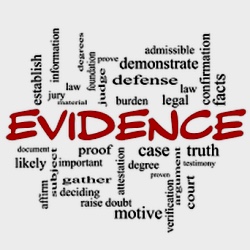Presumption of Revocation of A Lost Original Will law is set out at paragraph 9 by Haider v Kalugin 2008 BCSC 930:
“The applicable law is not in dispute. When an original will has been lost, mislaid or destroyed or is not available, an application may be made for an order admitting the will to probate by a copy, a completed draft, a reconstruction or evidence of its content: British Columbia Probate and Estate Administration Manual, 2nd edition, 2007, s.5.61.
[9] If a Will last known to be in custody of testator is not found at his death, the presumption is that the testator destroyed it with the intention of revoking it (“animo revocandi”). However, that presumption may be rebutted by evidence, written or oral, of the facts. The strength of the presumption will depend upon the character of the custody which the testator had over the Will: Sugden v. Lord St. Leonards (1876), 1 P.D. 154 (English C.A.).
[10] In Sigurdson v. Sigurdson [1935] 2 D.L.R. 445 (S.C.C.), at paragraph 49, Davis J. said:
[49] It needs very clear and convincing evidence to establish what is alleged to be a lost will. . . .The person propounding such a will has a burden of proof that persists throughout the whole trial to satisfy the court at its conclusion that the will is in fact lost and was not destroyed by the testator with the intention of putting an end to it. Each case of course turns upon its own facts but the principles respecting the well-settled presumption against the Will must be applied to the facts.
[11] In Welch v. Phillips (1836) 1 Moo PC 299, at 302, referred to in Bobersky Estate (Re) [1954] A.J. No. 12 (Alta Dist. Crt.), at paragraph 6, the court said:
[6] If a will traced to the possession of the deceased, and last seen there, is not forthcoming on his death, it is presumed to have been destroyed by the deceased himself; and that presumption must have effect, unless there is good and sufficient reason to repel it. It is a presumption founded on good sense, for it is highly reasonable to suppose that an instrument of so much importance would be carefully preserved, by a person of ordinary caution, in some place of safety and would not be either lost or stolen, and if, on the death of a maker, is not found in his usual repositories or else where he resides, it is in a high degree of probable that the deceased himself has purposely destroyed it. But this presumption, like all others of fact, may be rebutted by others, which raises a higher degree of probability to the contrary.
[12] As stated by MacKeigan, C.J.N.S. in McBurnie v. Patriquin [1975] N.S.J. No. 447, at paragraph 10:
[10] I should emphasize that the burden on the person who is trying to rebut the presumption is a very heavy burden.
[13] Some of the factors considered in determining whether the presumption has been overcome are:
· whether the terms of the Will itself were reasonable: Pigeon Estate v. Major, [1930] S.C.R. 252 (S.C.C.);
· whether the testator continued to have good relationships with the beneficiaries in the copy of the Will up to the date of death: Pigeon, supra;
· where personal effects of the deceased were destroyed prior to the search for the Will being carried out: Pigeon, supra;
· the nature and character of the deceased in taking care of personal effects: Pigeon, supra;
· whether there were any dispositions of property that support or contradict the terms of the copy sought to be probated: MacBurnie v. Patriquin, supra; Anderson v. Kahan Estate [2006], B.C.J. No. 716 (B.C.S.C.);
· statements made by the testator which confirm or contradict the terms of distribution set out in the will: Bobersky Estate, supra, Anderson, supra, Holst Estate v. Holst [2001], B.C.J. No. 1560 (B.C.S.C.), Re Green Estate [2001], A.J. No. 1253 (Alta Q.B.);
· whether the testator was of the character to store valuable papers, and whether the testator had a safe place to store the papers: Bobersky Estate, supra, Brimicombe v. Brimicombe Estate [2000], N.S.J. No. 157 (N.S.C.A.);
· whether there is evidence that the testator understood the consequences of not having a Will, and the effects of intestacy: Bobersky Estate, supra;
· whether the testator made statements to the effect that he had a will: Bobersky Estate, supra
[14] However, the presumption of revocation does not apply where the Will cannot be traced to the possession of the testator: Brimicombe v. Brimicombe Estate, supra, at paragraph 7.”
Morton v Christian 2014 BCSC 1303 also recently reviewed the area of law and stated inter alia:
51] In Haider there was no direct evidence that the testator ever had the original will in his possession, and the court refused to draw that inference. The presumption was held not to apply.
[52] The presumption of revocation is based in part on a logical inference that a person of ordinary prudence would keep safe an original document as important as a will, and that failure to find such an important document after a person’s death is presumptive evidence that it was intentionally destroyed by that prudent person. It goes to both the physical act of destruction and the intention to destroy required by s. 14(1)(d).
[55] As well, the presumption depends on the original being known to be possessed by the testator. To apply it here requires that a copy of a notarial will be treated as an original for the purpose of applying the presumption, and I have already found that not to be the case.
[56] Finally, I am not satisfied that Mr. Christian did in fact destroy a copy, or all three copies, of his will. There is no direct evidence on the point, and his statements to Ms. Iverson and Ms. Buchanan are not admissible to prove that fact.
[57] If I had found the contrary, tearing a copy of a notarial will, knowing that the original is safely lodged with a notary, appears to me to be no more effective than the “symbolical” steps referred to in Cheese v. Lovejoy (1877), 2 P.D. 251 (C.A.):
It is quite clear that a symbolical burning will not do, a symbolical tearing will not do, nor will a symbolical destruction. There must be the act as well as the intention. As it was put by Dr. Deane in the court below, “All the destroying in the world without the intention will not revoke a will, nor all the intention in the world without destroying: there must be the two.




